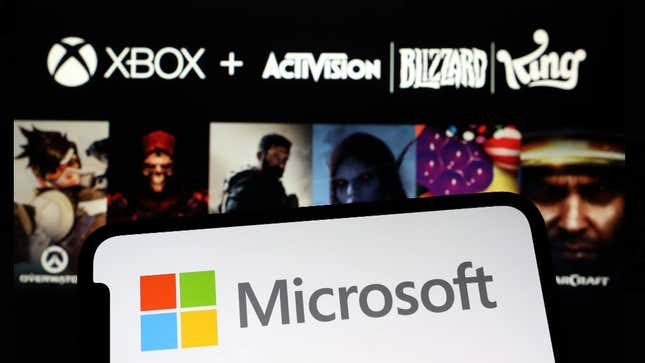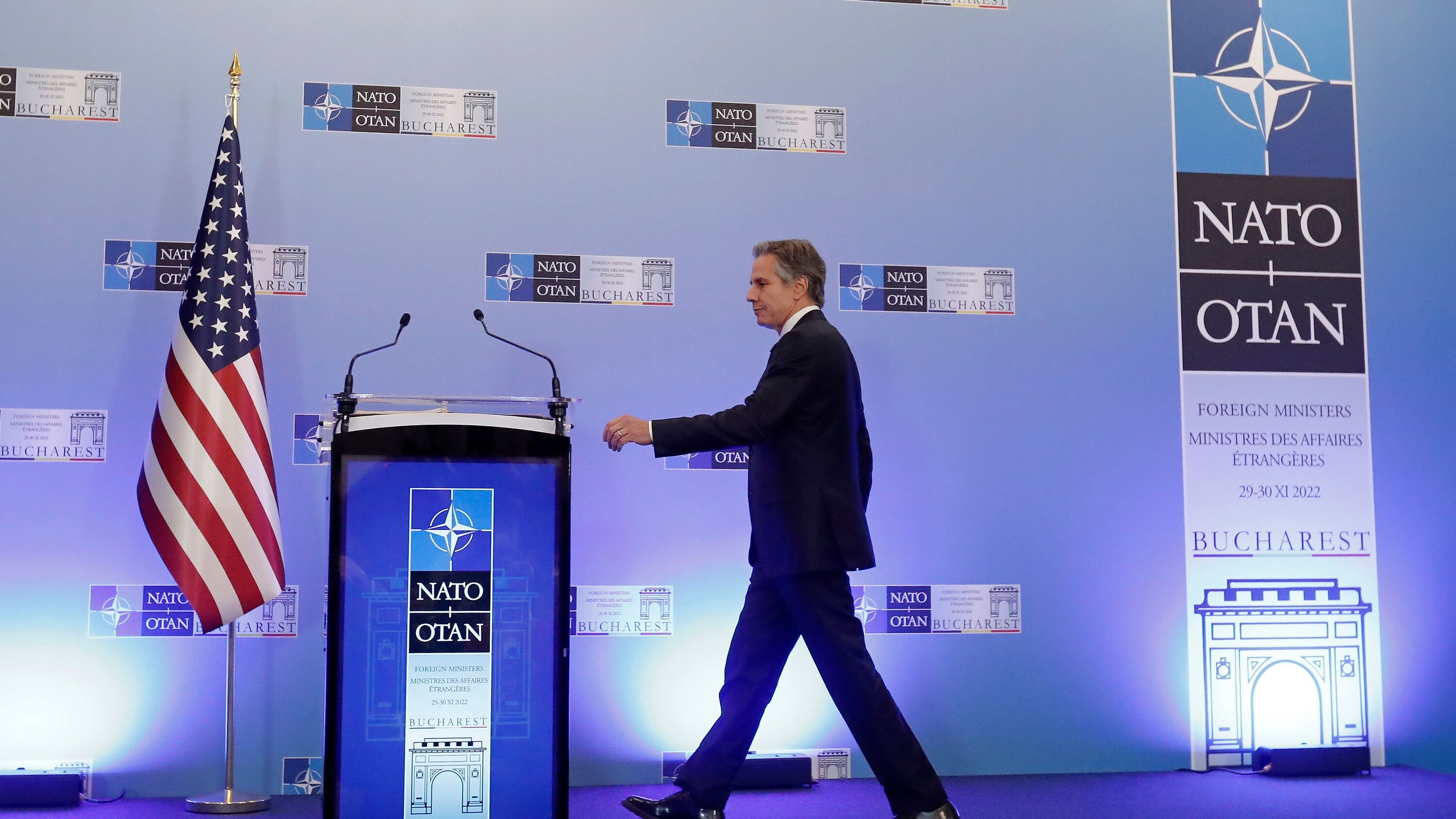FTC Challenges Microsoft's Activision Deal: Legal Battle Ahead

Table of Contents
The FTC's Concerns Regarding the Activision Blizzard Acquisition
The FTC's primary concern centers on the potential for Microsoft to leverage its acquisition of Activision Blizzard to create a monopoly in the gaming market. This fear isn't unfounded, given Microsoft's existing dominance in the console market with Xbox, its burgeoning Game Pass subscription service, and the immense popularity of Activision Blizzard's franchises like Call of Duty, Warcraft, and Candy Crush. The FTC's antitrust lawsuit argues that the merger would significantly reduce competition and harm consumers.
-
Stifled Competition Among Game Consoles: The FTC worries that Microsoft could make Activision Blizzard titles exclusive to Xbox, hindering competition from Sony's PlayStation and Nintendo's Switch. This could lead to a decline in the quality and variety of games available to consumers.
-
Reduced Choice for Gamers Due to Exclusive Titles: By making popular franchises like Call of Duty Xbox exclusives, Microsoft could significantly reduce consumer choice and force gamers to choose their platform based on access to specific titles rather than overall value or preference.
-
Potential Increase in Game Prices: Reduced competition often leads to higher prices. The FTC argues that without the competitive pressure of other platforms having access to Activision Blizzard games, Microsoft could justify increasing prices on existing and future titles.
-
Anti-competitive Practices Related to Game Pass Subscriptions: The FTC is concerned that Microsoft could use Game Pass to bundle Activision Blizzard titles, further solidifying its market dominance and making it harder for competitors to attract subscribers.
-
Impact on the Broader Gaming Ecosystem: The acquisition's impact stretches beyond consoles. The FTC worries about the impact on mobile gaming (Candy Crush) and PC gaming (Blizzard titles), potentially harming smaller developers and publishers.
Microsoft's Defense Strategy and Arguments
Microsoft strongly refutes the FTC's claims, arguing that the acquisition will ultimately benefit gamers and increase competition. Their defense strategy focuses on emphasizing the positives of the merger and countering the FTC's concerns about market dominance.
-
Plans to Bring Activision Blizzard Games to More Platforms: Microsoft has pledged to continue releasing Activision Blizzard games on multiple platforms, including PlayStation and Nintendo Switch, thereby ensuring competition remains healthy.
-
Claims that Game Pass Expands Access to Gaming, Not Limits It: Microsoft highlights Game Pass as a service that expands access to a wider variety of games for consumers, not as a tool to restrict access.
-
Arguments Against Claims of Stifling Competition: Microsoft argues that the gaming market is dynamic and competitive, and the acquisition won't significantly alter this landscape. They point to the presence of other major players and the continued emergence of new platforms and games.
-
Emphasis on the Benefits for Game Developers and Creators: Microsoft emphasizes its commitment to supporting game developers and creators, suggesting that the acquisition will lead to more innovation and better game development resources.
-
Promises of Fair Pricing and Competitive Practices: Microsoft assures regulators that it will maintain fair pricing and competitive practices, ensuring a positive experience for gamers.
Potential Outcomes and Implications for the Gaming Industry
The legal battle's outcome remains uncertain. Two primary scenarios emerge:
-
Scenario 1: FTC wins, acquisition blocked: This outcome would be a significant blow to Microsoft and Activision Blizzard, potentially impacting stock prices and future investment plans. It could also reset the landscape of mergers and acquisitions in the gaming industry.
-
Scenario 2: Microsoft wins, acquisition approved: This would solidify Microsoft's position in the gaming market. However, it could also lead to increased scrutiny of future mergers and acquisitions within the tech sector, pushing for stronger regulatory oversight.
Potential Precedents Set for Future Tech Mergers and Acquisitions: Regardless of the outcome, the FTC Activision Blizzard Microsoft case will create a significant legal precedent that will influence future mergers and acquisitions in the technology sector.
Impact on the Regulation of the Gaming Industry: This case highlights the need for clear and effective regulation of the gaming industry to prevent anti-competitive practices and ensure fair competition.
Long-term Effects on Game Pricing and Accessibility: The outcome will significantly shape game pricing and accessibility for years to come.
The Role of Other Regulatory Bodies
The FTC is not the sole regulatory body involved. The European Union and the UK's Competition and Markets Authority are also scrutinizing the acquisition, potentially leading to separate legal challenges and different outcomes depending on the jurisdiction. Their decisions will significantly affect the global implications of this merger.
Conclusion
The FTC's challenge to Microsoft's Activision Blizzard acquisition marks a pivotal moment for the gaming industry. The legal battle ahead will determine the future of the deal and significantly impact the competitive landscape. The outcome will set a precedent for future mergers and acquisitions, particularly in the tech sector. The interplay between FTC Activision Blizzard Microsoft and other regulatory bodies will be a key factor in the long-term outcome.
Call to Action: Stay informed about the ongoing FTC Activision Blizzard Microsoft legal battle by following our updates. Understanding the implications of this landmark case is crucial for anyone interested in the future of the gaming industry and the complexities of antitrust regulation.

Featured Posts
-
 The Relationship Between Hailee Steinfeld And Josh Allen
May 28, 2025
The Relationship Between Hailee Steinfeld And Josh Allen
May 28, 2025 -
 Romes Champion No Time For Complacency
May 28, 2025
Romes Champion No Time For Complacency
May 28, 2025 -
 Rutte Updates Nato Nations Moving Towards 2 Spending Target
May 28, 2025
Rutte Updates Nato Nations Moving Towards 2 Spending Target
May 28, 2025 -
 Puncak Arus Balik Mudik Bali Tanggal 5 Dan 6 April 2025 Apa Persiapannya
May 28, 2025
Puncak Arus Balik Mudik Bali Tanggal 5 Dan 6 April 2025 Apa Persiapannya
May 28, 2025 -
 Peringatan Hujan Lebat Prakiraan Cuaca Denpasar Dan Bali
May 28, 2025
Peringatan Hujan Lebat Prakiraan Cuaca Denpasar Dan Bali
May 28, 2025
Latest Posts
-
 Alasan Harga Kawasaki Z900 Dan Z900 Se Lebih Murah Di Indonesia
May 30, 2025
Alasan Harga Kawasaki Z900 Dan Z900 Se Lebih Murah Di Indonesia
May 30, 2025 -
 Spesifikasi Dan Harga Kawasaki Z900 And Z900 Se Dibawah Rp 200 Juta
May 30, 2025
Spesifikasi Dan Harga Kawasaki Z900 And Z900 Se Dibawah Rp 200 Juta
May 30, 2025 -
 Resmi Diluncurkan Kawasaki Z900 Dan Z900 Se Harga Di Bawah Rp 200 Juta
May 30, 2025
Resmi Diluncurkan Kawasaki Z900 Dan Z900 Se Harga Di Bawah Rp 200 Juta
May 30, 2025 -
 Best Kawasaki Ninja Deals R45 000 Off This Month
May 30, 2025
Best Kawasaki Ninja Deals R45 000 Off This Month
May 30, 2025 -
 Find Your Dream Kawasaki Ninja R45 000 Discount Available
May 30, 2025
Find Your Dream Kawasaki Ninja R45 000 Discount Available
May 30, 2025
